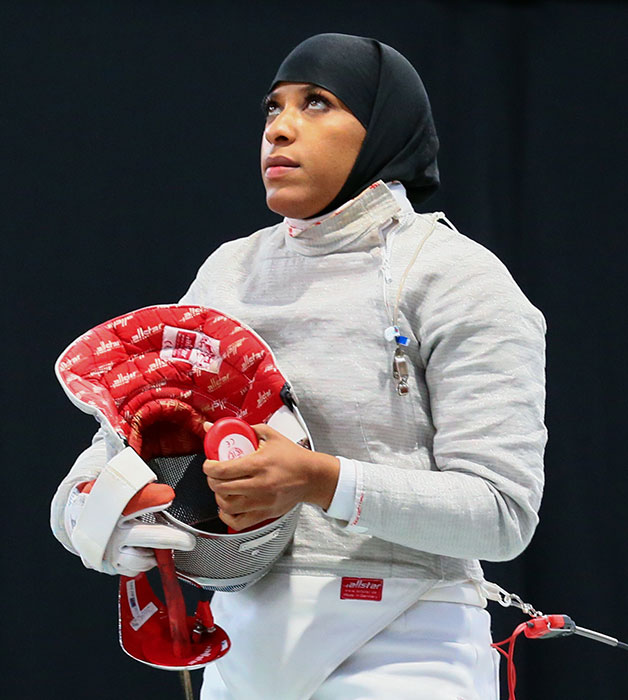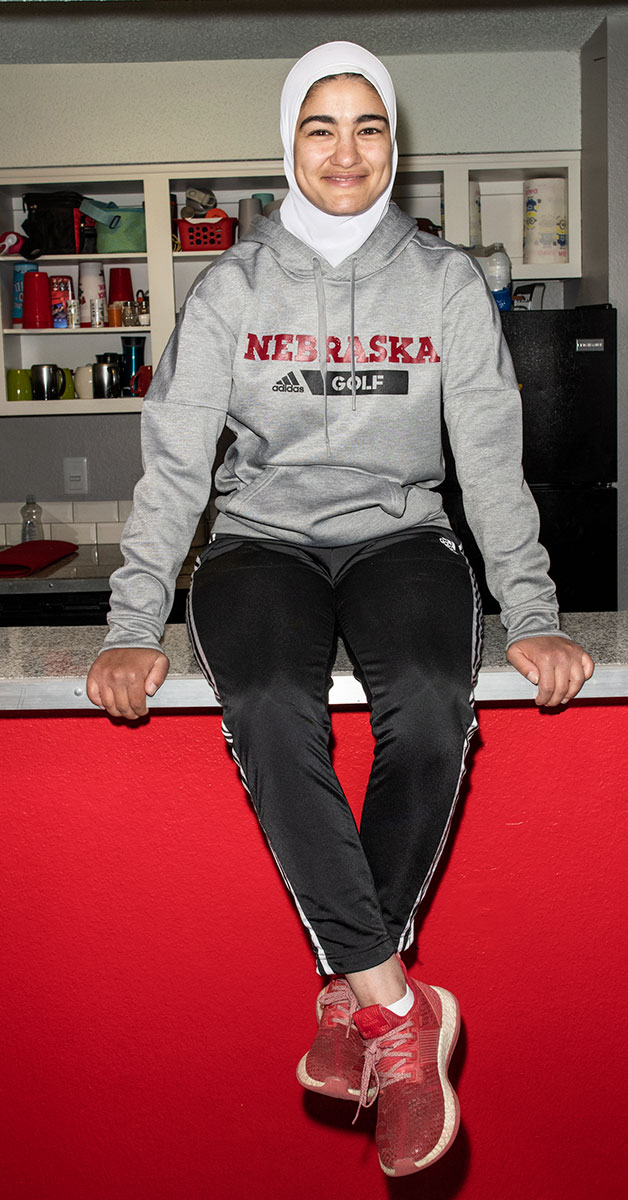They say I’m the first Division I golfer to observe the hijab, a traditional head covering for Muslim women. Every time I step on the course, it’s a reminder I’m different. No other players look or dress like me. But it also reminds me that I’m helping break down stereotypes. My parents emigrated from Egypt and settled in Folsom, California. Growing up Muslim American, I was told straight up that people who look like me don’t belong in this country. I’ve heard every racial slur. It got worse when I started wearing the hijab in seventh grade. I think it’s an obligation for women to dress modestly. The attention was hard, but I had watched older cousins go through it. I was so sure of my decision that I had prepared myself mentally for what would follow.
When I was very young and people talked about September 11, I didn’t know what it was. But when we got to the age when teachers started talking about it, all the students would look at me. My mum explained to me about the perpetrators: “Those people have nothing to do with you, no matter what others say. They in no way, shape or form are related to you, and you don’t have to defend yourself from those who say otherwise.”

Our house was on the seventh hole at Empire Ranch Golf Club. My dad played golf and generally encouraged my younger brother and me in lots of sports. In high school, I would hit balls at the range until it was pitch black. I would putt until I couldn’t see the cup anymore. It was therapeutic. Golf was time alone to make sense of everything going on in the world.
The first time I ever saw myself reflected in society was in 2016. Ibtihaj Muhammad [right] was the first female Muslim American to win an Olympic medal, in fencing, as well as the first Olympian to compete for Team USA while observing the hijab. I watched her first match, which she won. When she took off her mask, I cried. I finally saw someone who looked like me representing our country in a sport. I didn’t realise how much grief I was carrying, the weight of having never seen myself.
I know how hard being the first is, and for Muhammad it was on a global stage. I respect the struggle she went through. Nevertheless, I try to see myself as just a golfer. As much as I’m aware of how other people see me, I’m not going to play well if I’m thinking about the bigger picture. I play best when I try to play for myself, my family, my team. As long as I’m staying true to myself and my character, hopefully that will reflect well.

When I was a senior in high school, I was invited to The First Tee Congressional Breakfast in Washington, DC. Not a lot of people came up and introduced themselves to me. During my speech, I choked up a bit. I could be wrong, but I think people in the audience teared up, too. After my speech, almost everyone in the room came up and introduced themselves.
PGA Tour commissioner Jay Monahan was there. He asked for my speech so that he could deliver it to the people who work at the PGA Tour. Since then, I’ve met President George W. Bush, Annika Sorenstam and many leaders in golf. Getting to develop relationships with such people has been awesome. There are not many sports that can provide that kind of opportunity.
I probably experience a little more sexism on the golf course than racism, though there has been plenty of both. I’ve been called sweetheart and girlie a lot. I get asked if I want to play from the ladies’ tees all the time, though that’s not the tees where we play from. Through two seasons at the University of Nebraska-Lincoln, my scoring average is just a few decimals higher than 76, on layouts that can be 6,300 yards or more.
I’m a Tiger Woods fan. He’s had his share of haters. I appreciate his dominance and belief in himself. I’m trying to emulate his confidence because that’s the weakest part of my game. Maybe also my putting – I don’t make enough of them. If I have a strength, it’s probably course management. My dad always tells me he admires that I never quit during a round. That’s really important in college golf. You don’t know if your score is going to count, so you need to fight for every stroke.
There are days when I’m angry and upset. But people who change the world for the better are often angry and upset. They took the initiative to try to change the society that created those negative feelings. But I’ve also learned that it’s exhausting to be angry all the time. It’s more important to have selective outrage.
“The attention I get from my hijab probably freaks my parents out more than it does me.” – Noor Ahmed
I don’t plan to pursue golf professionally. I’d like to work in intercollegiate athletics. I’d love to give back to sports by working with student-athletes who are going to go through what I’m going through. It’s a great way to start diversifying the sports industry.
The attention I get from my hijab probably freaks my parents out more than it does me. They’re parents. They have a right to be worried for the safety of their children. But I’m just living my truth, and I hope I’m encouraging others to live theirs.
– Noor Ahmed spoke with John Strege

